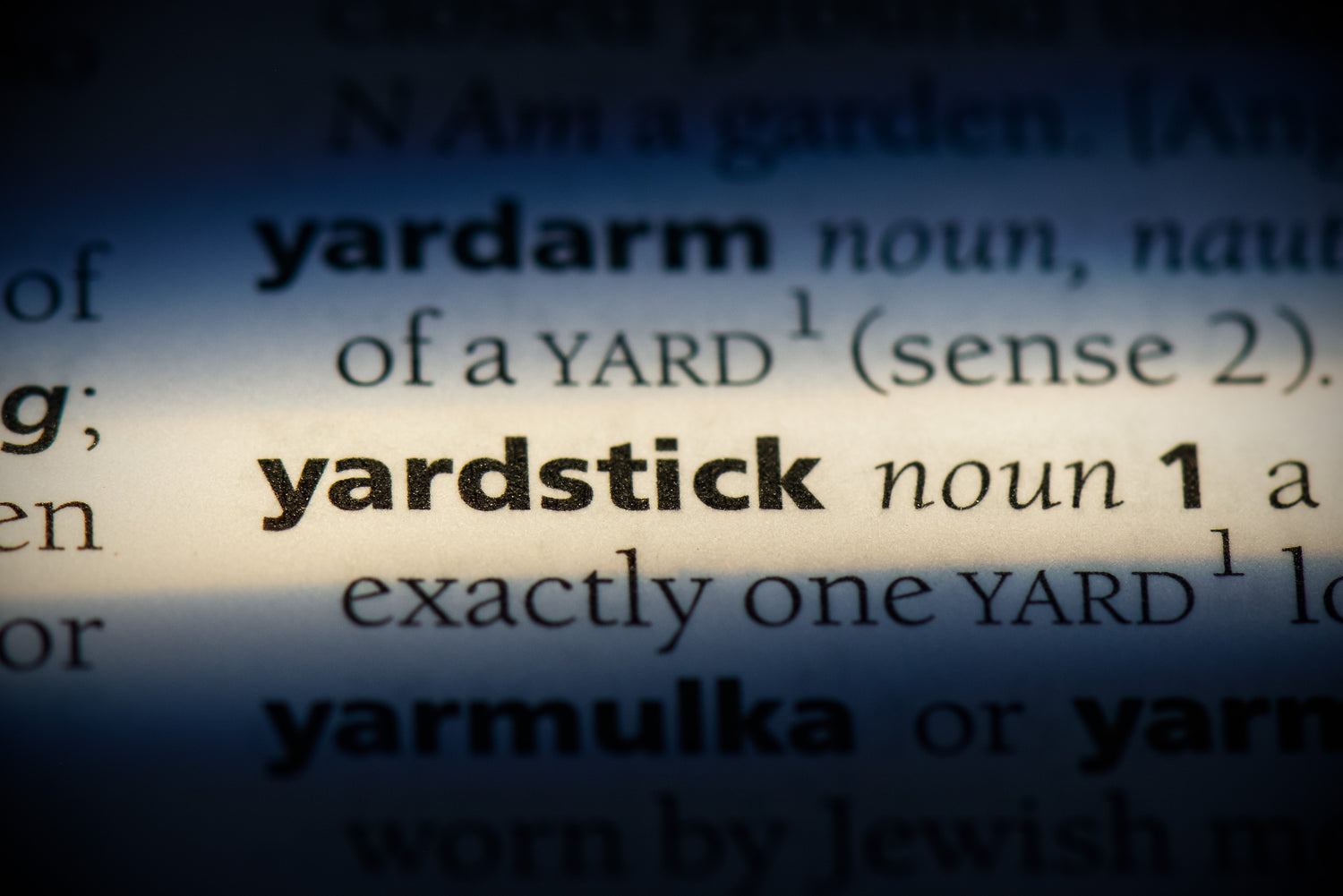
I’m not the most educated man in the room, but I’ve come to know that the rain generally falls downwards, a West Texas sunset over creaking pump jacks is moving and beautiful, and that the quality of an inch is perceived differently based on motivation and desire. I appreciate differing opinions on subjects that aren’t particularly rooted in quantifiable concrete outcomes, but when it comes to the length of an inch it doesn’t matter what you want to see: it’s still an inch. What most folks need–but very few actually want– is a way to clearly determine that measurement without any outside persuasion.
Critical thinking is the most valuable process you can teach your brain. Think of it as your yardstick for measuring bullshit. It isn’t innate, either. There is no “common sense.” It’s a skill that must be learned, developed, and honed. Social media and identity targeting have destroyed our ability to exercise this craft by removing or obscuring the yardsticks once used to determine the rules of the game. If nobody can agree to the size of the field or the shape of the ball, everything that comes after is immaterial. Let’s talk about how to bring that measuring device back into play.

First, we should strive to view all information as a simple and measurable input. Take the input you are evaluating and ask yourself if you WANT to believe it. Then, take away your own bias by asking “Does this statement make sense?” Usually we can stop at this point when our gut tells us it doesn’t. But, if you are still unsure, take that input and compare it to a body of information provided by a collection of experts who both agree and disagree with the input. Assess what the weight of differing opinions is and take into account what the motivations of these critics and advocates might be. If the issue still seems clouded by bias you should start looking at data, but apply the same level of emotional distance and criticism to whatever data and analysis you find. If the numbers support your original bias, assess what they could mean for the opposition. Put yourself in the counter argument and search for evidence to support that premise. In the end, no matter what outcome you arrive at, you will have crafted a well rounded argument for whatever your decision is. This is the stuff that gave Socrates a boner.
Another thing I know is that in Special Forces weapons guys aren’t medics, even if they have participated in medical cross training. Most of us (I’m a Special Forces Weapons NCO myself) are generalists… and exceptionally average across an incredible range of skills. Much like your Aunt Martha who became an expert in infectious disease right around the time she passed from health complications unrelated to the pandemic, you should be careful what information you take as gospel. People who tell you they are subject matter experts, rarely are. An argument stands on the merits of data and evidence. If someone is using their position of authority rather than evidence to add weight to their opinion, ignore them.

In the interest of fairness, people that are school taught are generally competent in execution only after a lot of time applying those lessons in real world scenarios. Those same practitioners, once competent, are generally incompetent at teaching those tasks or skills to a neophyte. Expertise comes from applied experience and has very little to do with the volume with which you tell others you are an expert. Trusting the word of select experts that appeal to your bias only reinforces the Dunning-Kreuger Effect shown in the image above. In fact, the probability somebody is good at something goes down each time you hear them talk about it… Yogi Berra notwithstanding.
I hire coaches who are Subject Matter Experts and look to experts for expert training. Me? I’m an expert at expressing ideas, disappointing women, good natured shit talking, and teaching double digit IQ partner forces to shed the fetters of oppression. Don’t ask for much more and expect anything of value. Misleading people is dishonest, so I don’t put that information in the fine print. You know what you’re getting.

In an era of unprecedented information availability, anyone can pretend to be an expert based on a respectable resume and a higher than average history of accomplishments. Snake oil salesmen bank on idolatrous hero worship and the general ignorance of their audience… do YOU want to be seen as ignorant or a sycophant? This pandering style of marketing has genuinely infected almost every facet of our modern lives, and it’s time we started to push back. There’s a sucker born every minute, so try not to be that sucker.
I’m not even sure most companies have the expertise to create products that aren’t influenced by pandering. I’m not saying every product is a tourniquet that can’t reliably stop bleeding, but if a company makes an unproven product it’s trivially easy to find a shill or “influencer” to promote it and provide a veneer of credibility. Even worse, companies are known to outright fabricate the professional certification of their products. Just because something exists doesn’t mean it works or is worth consideration, even if your folk heroes tell you that it’s the best thing since sliced bread (and I’m definitely not getting a handsome kickback when you use my discount code, cross my heart).

Be careful who you trust, and know that the errors you catch in your process are just the tip of the iceberg. The more you educate yourself, the less shiny Snake Oil salesmen will be, and the less their empty words will influence your purchases and beliefs. While credibility is built on experience, if you have none, it’s easy to be swayed by someone with very little who brags about theirs incessantly. Winnowing out the truth doesn’t require much work, but it does require an open mind… and a yardstick.
#Dieliving





Leave a comment
This site is protected by hCaptcha and the hCaptcha Privacy Policy and Terms of Service apply.